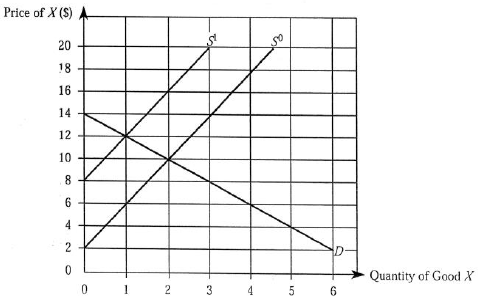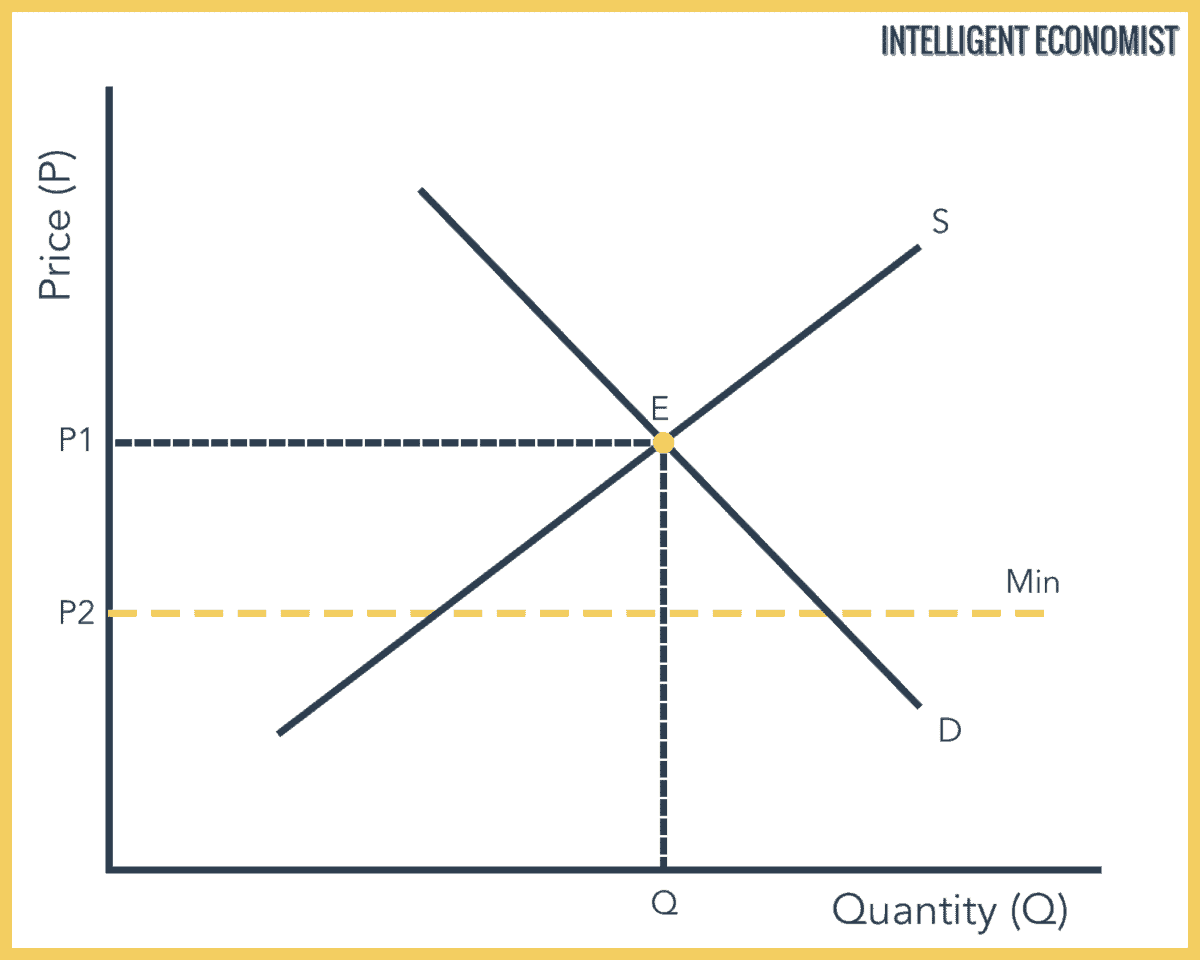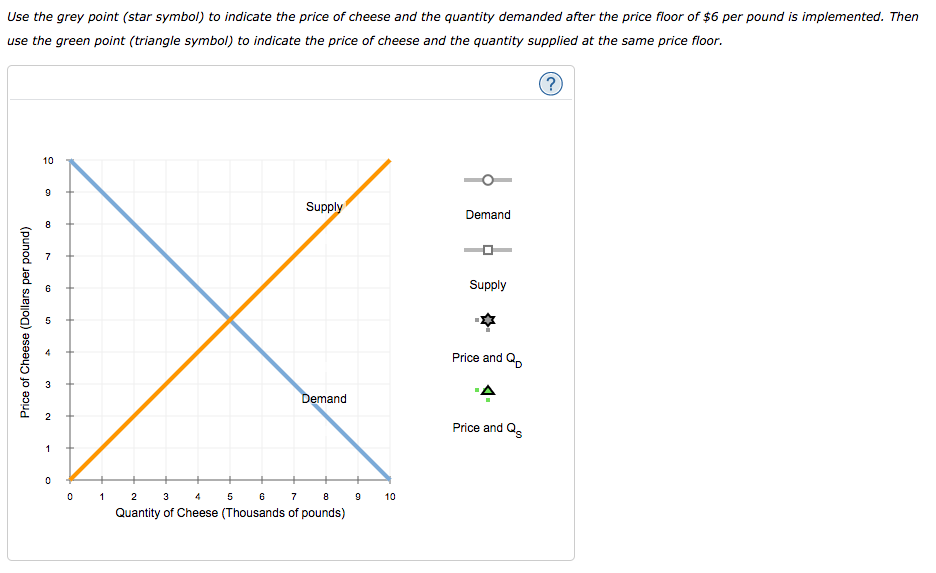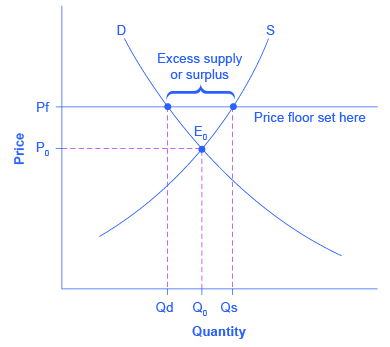A price floor is a government or group imposed price control or limit on how low a price can be charged for a product good commodity or service.
A price floor is a legally imposed price.
A price floor is a legally imposed price.
The price floor acts as a minimum price that constrains the market price if the equilibrium market price would have been below the ceiling absent market intervention.
A price floor must be higher than the equilibrium price in order to be effective.
Perhaps the best known example of a price floor is the minimum wage which is based on the view that someone working full time should be able to afford a basic standard of living.
Price controls can be price ceilings or price floors.
A price floor provides a bottom limit think of a physical floor in a room for a price.
A price ceiling is the legal maximum price for a good or service while a price floor is the legal minimum price.
Question 2 a price floor is a legally imposed price.
Suppose 20 000 people in pennsylvania work in fast food restaurants for the federal minimum wage of 7 25 hour.
A price floor is a legally imposed price.
If the state of pennsylvania increases its.
Assume that all fast food restaurants employ many minimum wage workers.
A price ceiling is a legally imposed price.
Although both a price ceiling and a price floor can be imposed the government usually only selects either a ceiling or a floor for particular goods or services.










